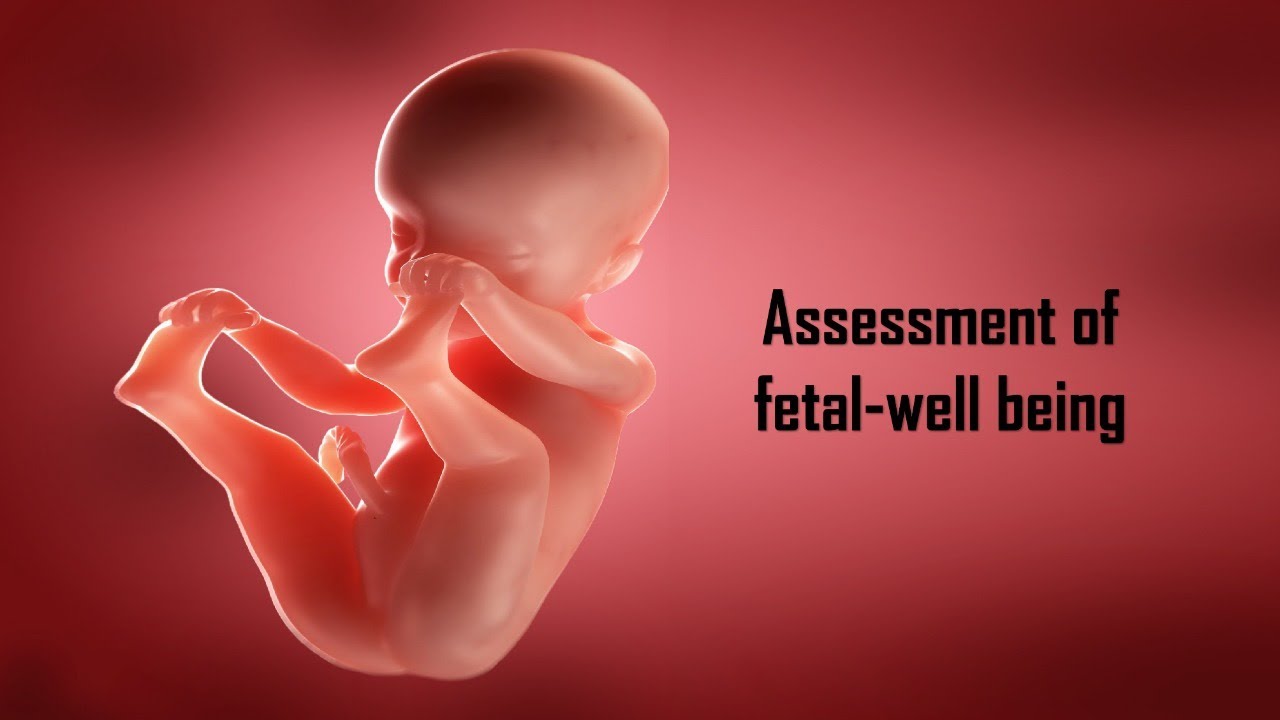
Fetal well-being assessment
Fetal well-being assessment is a critical aspect of prenatal care, ensuring the health and safety of both the mother and the unborn child. This comprehensive guide delves into the various methods, importance, and advancements in fetal well-being assessment, providing expectant parents and healthcare professionals with detailed insights.
Importance of Fetal Well-Being Assessment
Ensuring Healthy Development
Fetal well-being assessments play a pivotal role in monitoring the growth and development of the fetus. Regular assessments help in identifying any potential issues early, allowing for timely interventions.
Reducing Pregnancy Complications
By closely monitoring the fetus, healthcare providers can detect complications such as intrauterine growth restriction (IUGR), placental insufficiency, and fetal distress. Early detection significantly reduces the risk of adverse outcomes.
Providing Peace of Mind
For expectant parents, regular fetal well-being assessments offer reassurance about the health of their baby. This psychological comfort is invaluable during the often stressful period of pregnancy.
Methods of Fetal Well-Being Assessment
Ultrasound Scans
Routine Ultrasound
Routine ultrasound scans are the most common method for assessing fetal well-being. These scans provide detailed images of the fetus, allowing healthcare providers to monitor growth, detect abnormalities, and assess amniotic fluid levels.
Doppler Ultrasound
Doppler ultrasound measures blood flow in the umbilical cord and fetal vessels. This method is particularly useful in identifying placental insufficiency and fetal anemia.
Non-Stress Test (NST)
The non-stress test monitors the fetal heart rate in response to the fetus’s movements. A reactive NST indicates a healthy fetus, while a non-reactive result may necessitate further investigation.
Biophysical Profile (BPP)
The biophysical profile combines ultrasound and NST to assess fetal well-being. It evaluates five parameters: fetal movement, fetal tone, amniotic fluid volume, fetal breathing movements, and heart rate reactivity.
Contraction Stress Test (CST)
The contraction stress test evaluates the fetal heart rate during uterine contractions. This test helps in assessing the fetus’s ability to withstand the stress of labor.
Amniotic Fluid Index (AFI)
The amniotic fluid index measures the volume of amniotic fluid surrounding the fetus. Abnormal levels can indicate potential issues such as placental dysfunction or fetal anomalies.
Fetal Movement Counting
Fetal movement counting involves the mother tracking the number of fetal movements over a specific period. A decrease in movements may signal fetal distress and require immediate medical attention.
Advanced Techniques in Fetal Well-Being Assessment
3D and 4D Ultrasound
3D and 4D ultrasounds provide more detailed images of the fetus, allowing for better assessment of fetal anatomy and detection of abnormalities. These advanced imaging techniques offer a more comprehensive view compared to traditional 2D ultrasounds.
Fetal Echocardiography
Fetal echocardiography is specialized ultrasound that focuses on fetal heart. This technique is crucial for diagnosing congenital heart defects and ensuring appropriate management.
Magnetic Resonance Imaging (MRI)
Fetal MRI provides high-resolution images of the fetus, particularly useful in assessing complex fetal anomalies. It is often used as a complementary tool to ultrasound.
Genetic Testing
Fetal MRI provides high-resolution images of the fetus, particularly useful in assessing complex fetal anomalies. It is often used as a complementary tool to ultrasound.
When to Conduct Fetal Well-Being Assessments
Routine Prenatal Visits
Fetal MRI provides high-resolution images of the fetus, particularly useful in assessing complex fetal anomalies. It is often used as a complementary tool to ultrasound.
High-Risk Pregnancies
In high-risk pregnancies, more frequent and detailed assessments are necessary. Conditions such as gestational diabetes, hypertension, and multiple pregnancies warrant closer monitoring.
Post-Term Pregnancies
For pregnancies that extend beyond the due date, regular fetal well-being assessments are crucial to ensure the fetus remains healthy and to determine the appropriate time for delivery.
Interpreting Assessment Results
Normal Results
Normal assessment results indicate that the fetus is developing appropriately and there are no immediate concerns. However, continuous monitoring is essential throughout the pregnancy.
Abnormal Results
Abnormal results may indicate potential issues such as fetal distress, growth restriction, or placental dysfunction. Further diagnostic tests and interventions may be required to address these concerns.
Follow-Up Actions
Based on the assessment results, healthcare providers may recommend lifestyle changes, medical treatments, or in some cases, early delivery to ensure the safety of the mother and baby.
The Role of Healthcare Providers
Obstetricians
Obstetricians play a central role in conducting and interpreting fetal well-being assessments. They provide guidance and make critical decisions regarding the management of the pregnancy.
Sonographers
Sonographers are specialized technicians who perform ultrasound scans. Their expertise is vital in obtaining accurate images and data for fetal assessment.
Midwives
Midwives provide continuous support and care throughout the pregnancy, including monitoring fetal well-being. They play a crucial role in educating expectant parents and addressing their concerns.
Perinatologists
Perinatologists, or maternal-fetal medicine specialists, handle high-risk pregnancies. Their advanced training allows them to manage complex cases and perform specialized fetal assessments.
Technological Advancements in Fetal Well-Being Assessment
Portable Ultrasound Devices
Portable ultrasound devices have revolutionized fetal well-being assessments, allowing for more accessible and immediate evaluations, especially in remote or underserved areas.
Artificial Intelligence (AI)
AI is increasingly being integrated into fetal well-being assessments, enhancing the accuracy and efficiency of diagnostic processes. AI algorithms can analyze ultrasound images and fetal heart rate patterns, providing valuable insights.Contact Us
Telemedicine
Telemedicine enables remote fetal well-being assessments, allowing expectant mothers to consult with healthcare providers without the need for frequent hospital visits. This is particularly beneficial for those in rural or isolated regions.Schedule your Consultation with Dr. Ritesh Nawkhare
